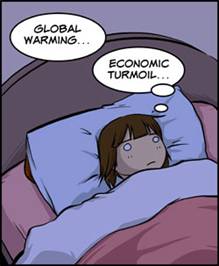New study findings confirm that minimum six hours sleep is extremely important to prevent diabetes. "This research supports growing evidence of the association of inadequate sleep with adverse health issues," says the study's first author Lisa Rafalson, a National Research Service Award fellow in the University at Buffalo department of family medicine.
Severely restricting sleep can result in an increase in appetite-stimulating hormones and a decrease in the hormones that inhibit appetite. So people who are sleep-deprived crave calorie-dense foods. In addition, sleep restriction decreases glucose tolerance, while increasing cortisol levels and variations in the heart rate -- changes that can result in increased blood glucose levels.
The researchers matched 91 people who developed pre-diabetes with study participants who had maintained normal glucose levels for years. Participants were placed into three groups based on their Sunday through Thursday average daily amount of sleep: "short-sleepers," who reported less than six hours of sleep nightly; "long-sleepers," who reported sleeping more than eight hours nightly; and a reference group who slept six-to-eight hours a night.
As per the study along with good diet and exercise sleep is also important to prevent diabetes.
|
 |

